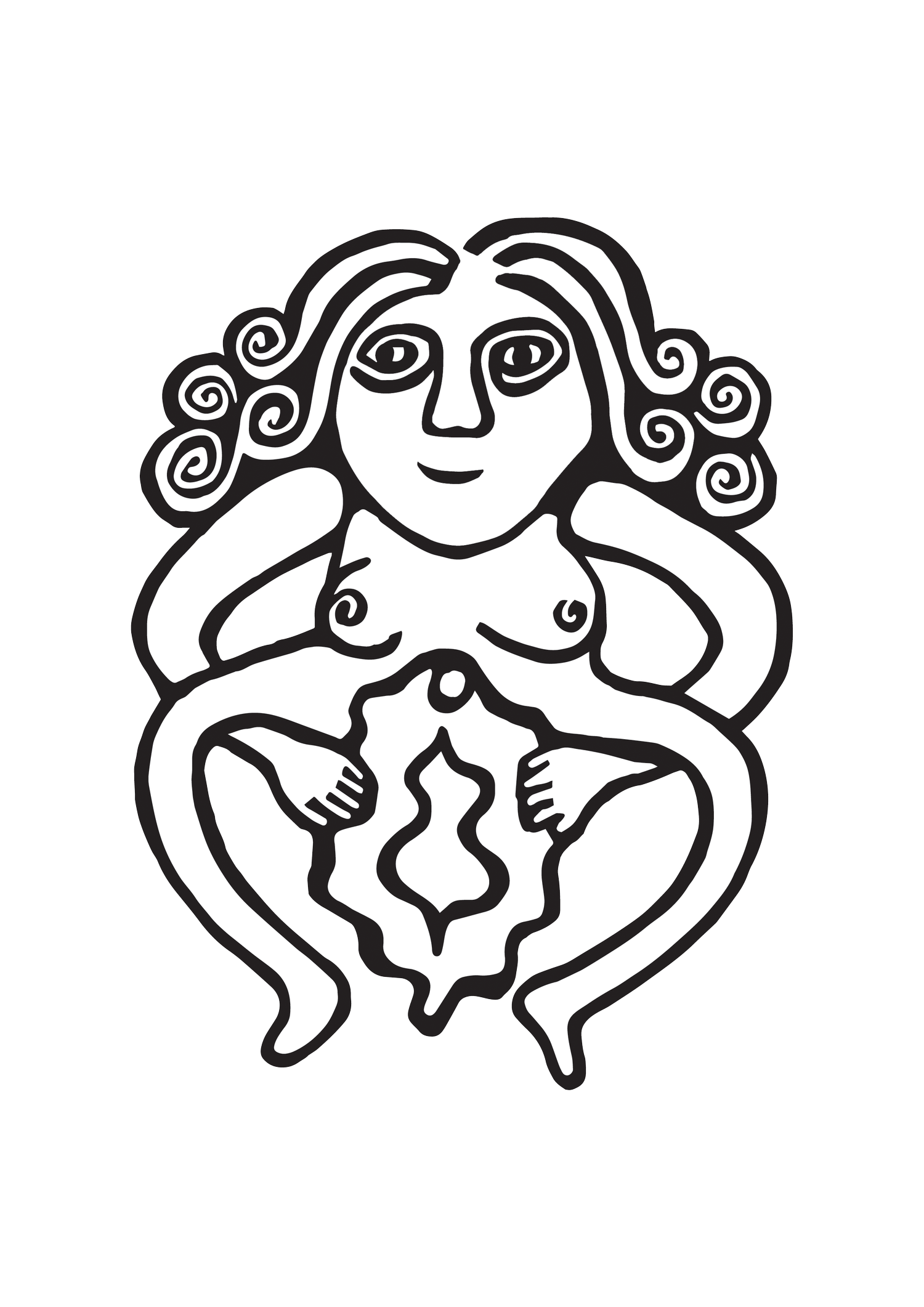2021
7 Irish locations unveiled each day the week of International Women’s Day.
Read about the meaning behind each location below (under image gallery).
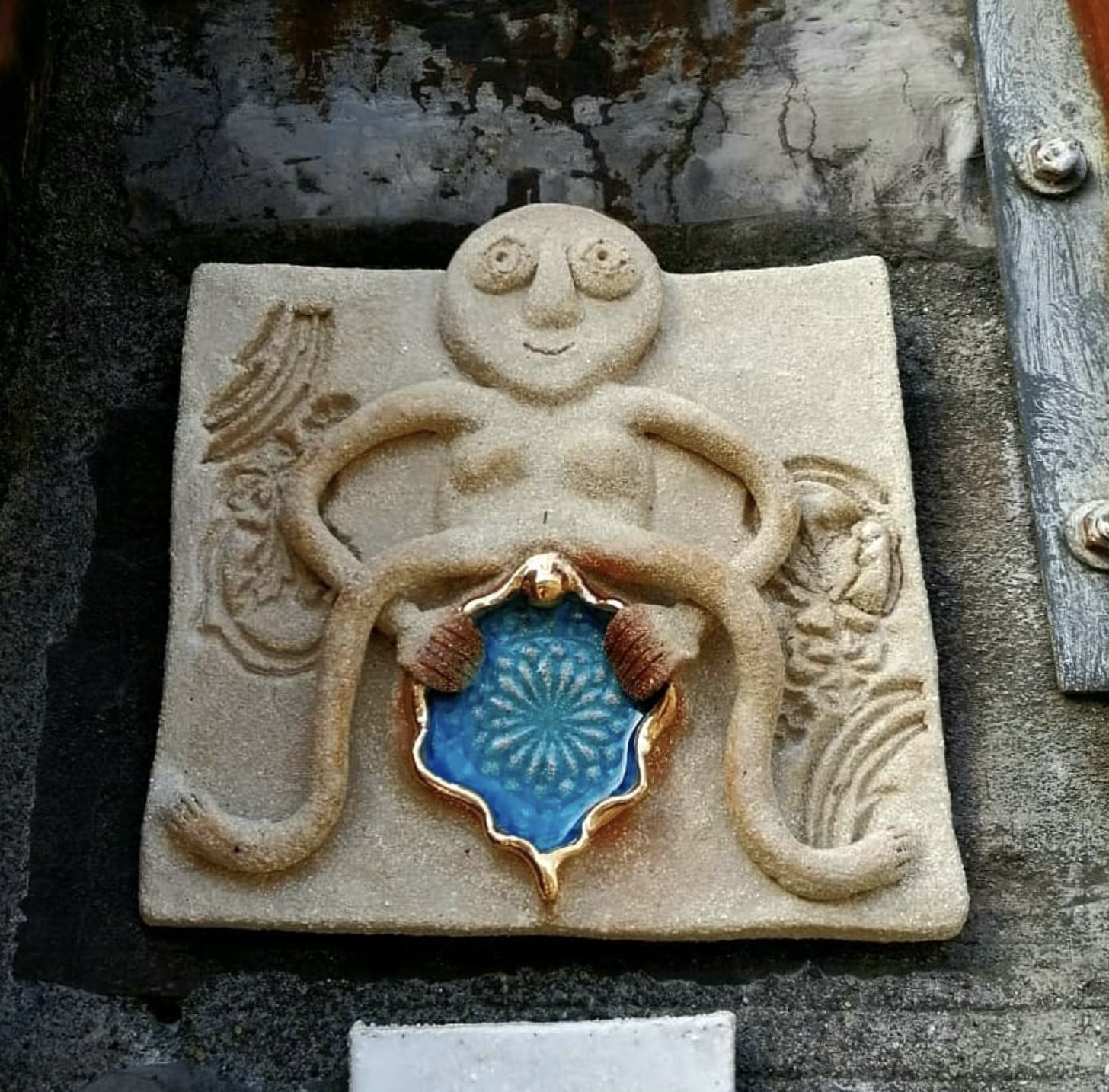
Irish Refugee Council, Dublin

Irish Refugee Council, Dublin

City Quay; Former Pornhub Offices, Dublin
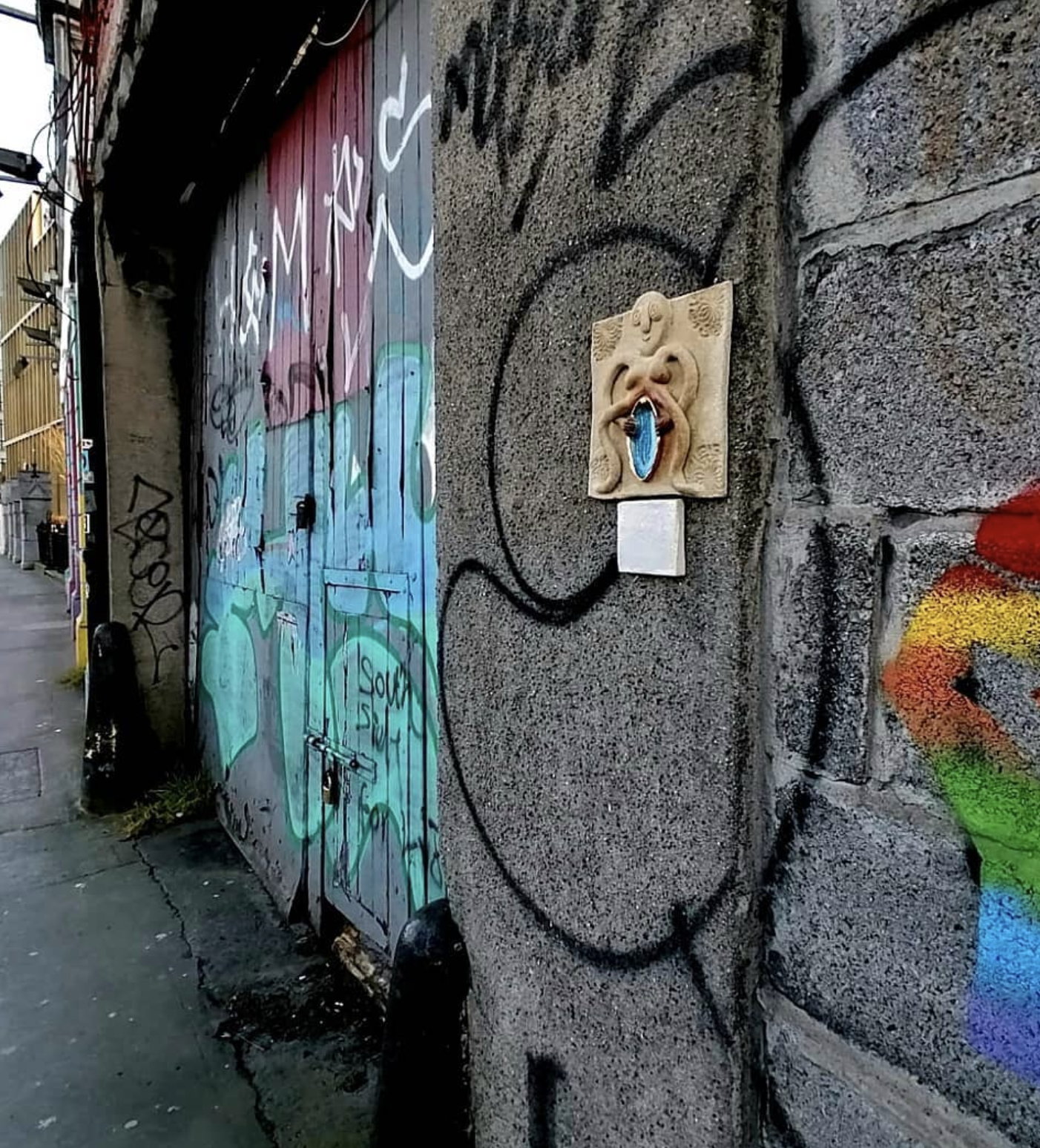
City Quay; Former Pornhub Offices, Dublin

Donnybrook Magdalene Laundry, Dublin

Donnybrook Magdalene Laundry, Dublin

Transgender Equality Network Ireland, Dublin

Transgender Equality Network Ireland, Dublin

Merrion Square, Dublin

Merrion Square, Dublin

Chancery St, Dublin

Chancery St, Dublin

Department of Health, Baggot Street Lower, Dublin

Department of Health, Baggot Street Lower, Dublin
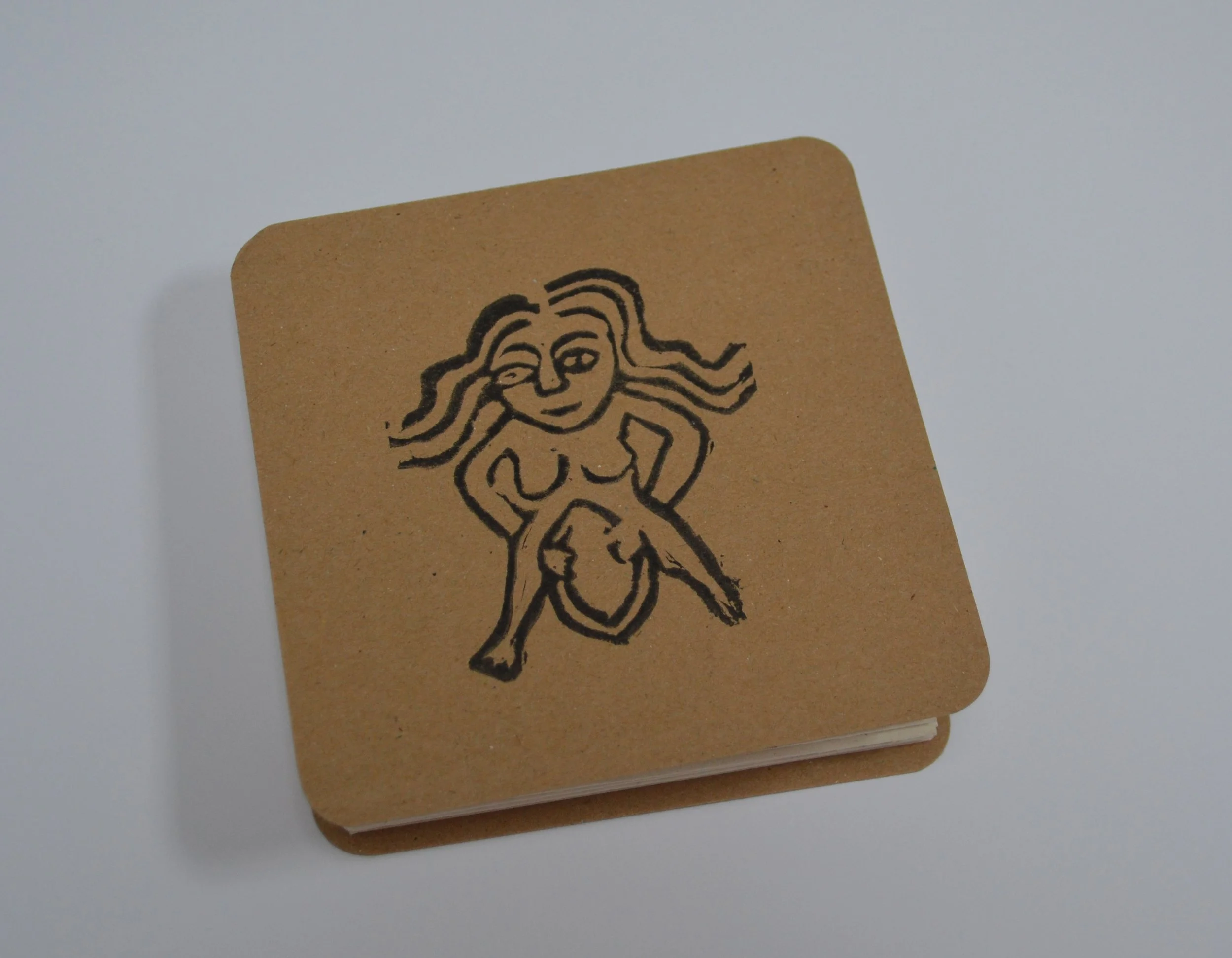
PS Zine 2021, Lino & Risoprint, Handmade layout, 20 copies made. Documents all sheelas & locations from 2021.
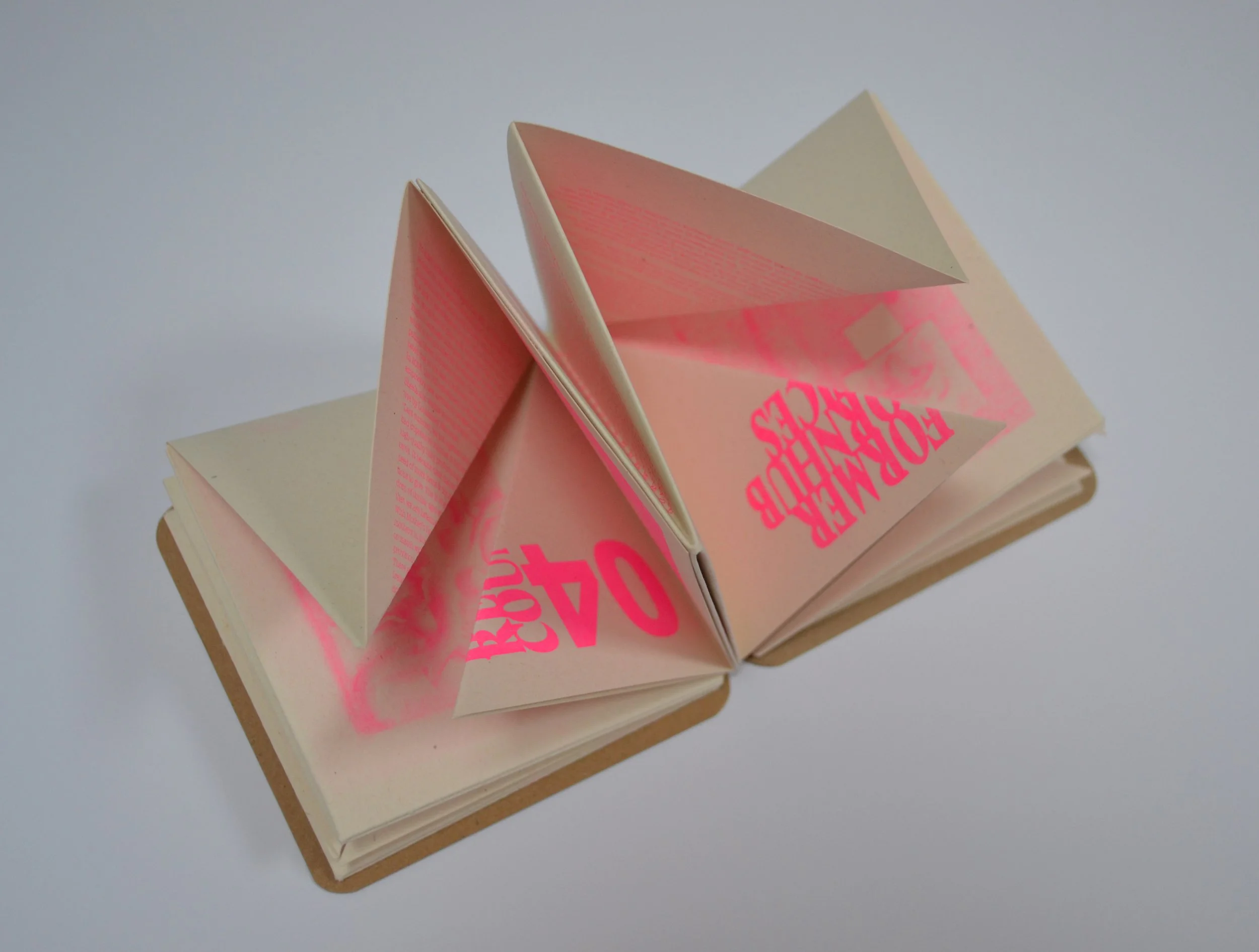
PS Zine 2021, Lino & Risoprint, Handmade layout, 20 copies made. Documents all sheelas & locations from 2021.
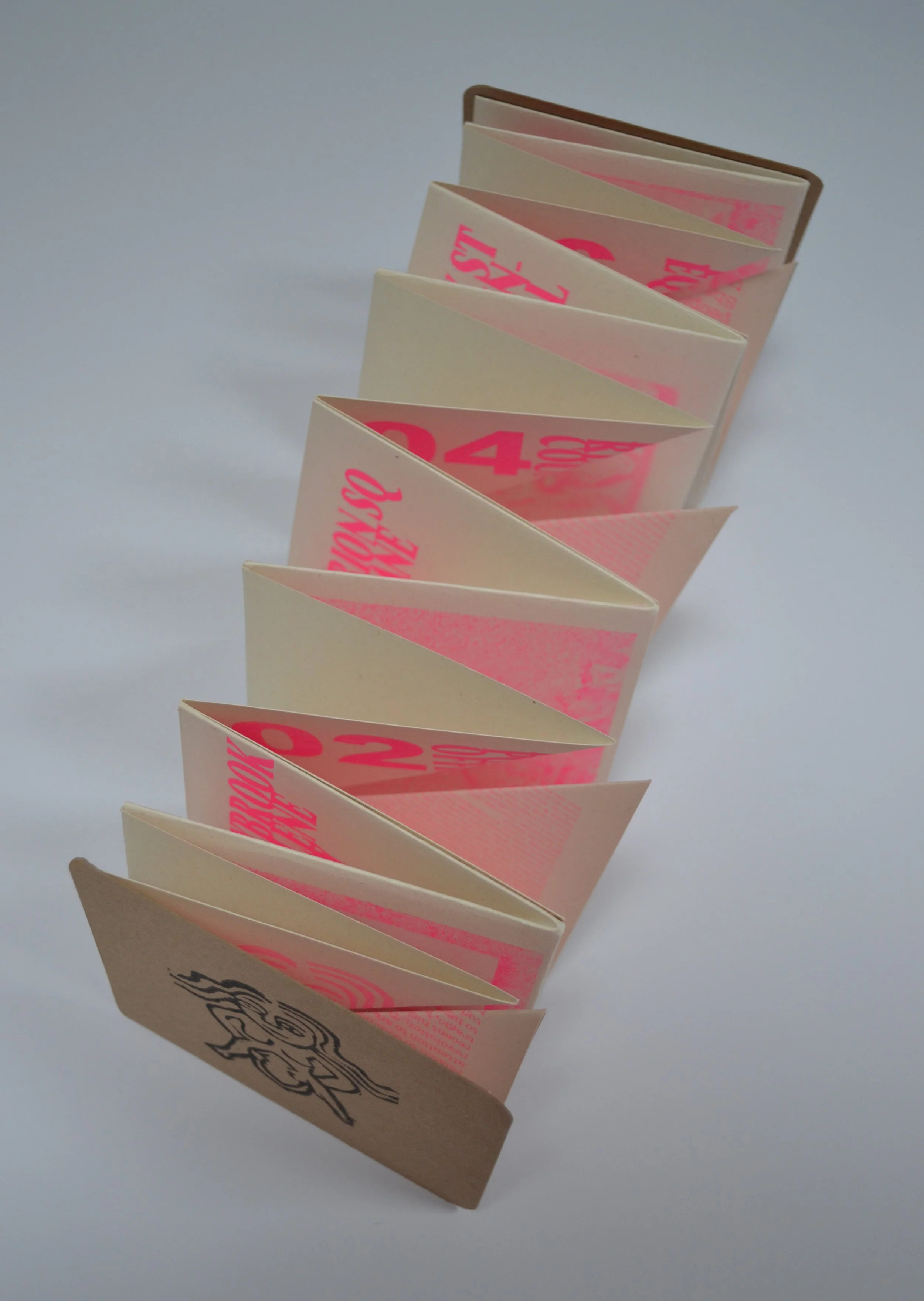
PS Zine 2021, Lino & Risoprint, Handmade layout, 20 copies made. Documents all sheelas & locations from 2021.
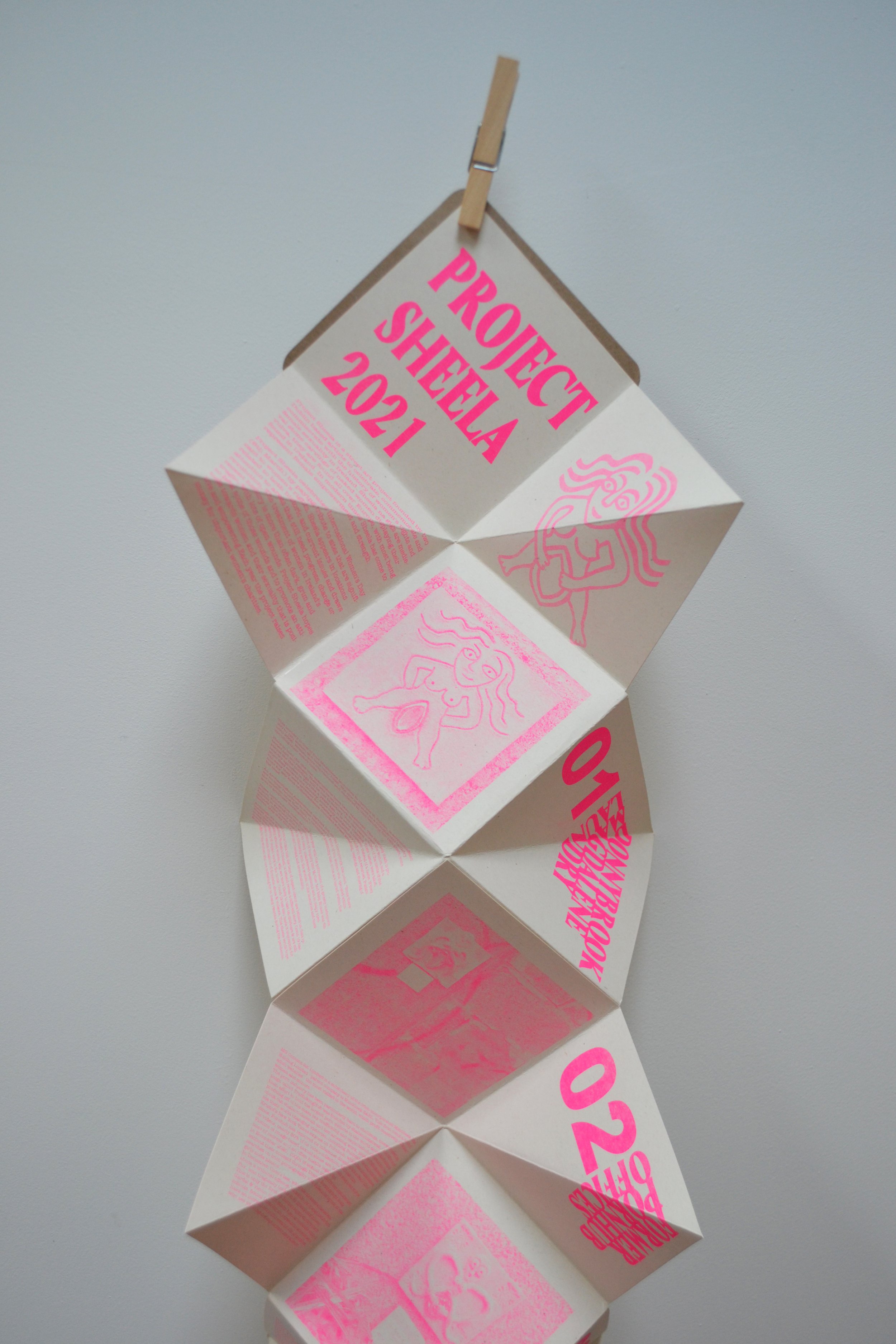
PS Zine 2021, Lino & Risoprint, Handmade layout, 20 copies made. Documents all sheelas & locations from 2021.
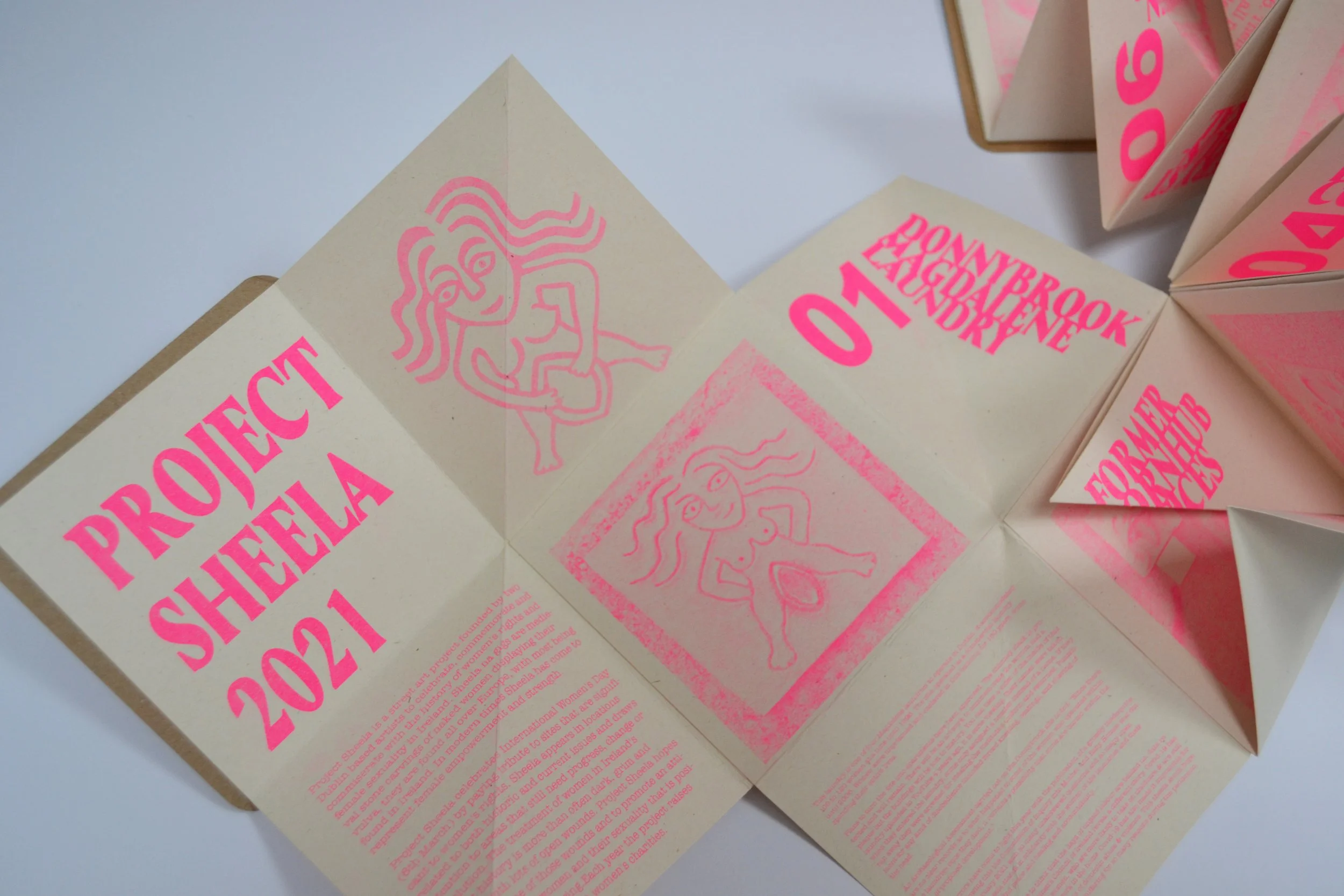
PS Zine 2021, Lino & Risoprint, Handmade layout, 20 copies made. Documents all sheelas & locations from 2021.
-
To mark International Women's Day 2021, the IRC employment team held a seminar on the theme of 'Advocating for Inclusive Employment', featuring a discussion and reflection with women living in Direct Provision.
The lack of knowledge of the Irish labour market and recruitment processes, non-recognition of prior work experience and/or qualifications, and limited English language skills pose a significant challenge to finding work often, which is compounded by the experience of ‘institutionalisation’ under the appalling Direct Provision system. The situation for women is further exacerbated due to the lack of sufficient childcare supports.
In 2018, the IRC established the Women's Employment Programme, which empowers new arrivals to navigate Ireland’s employment systems.
Sheela also wishes to bring attention to the genius 'Let's Match Mums' initiative by Louisamay Hanrahan:
''Last summer, we put together baby boxes for expectant mothers in DP. We had impressive volumes of mothers in Dublin & Ireland donating very high-quality baby products that asylum seekers in DP were delighted to receive. It became clear that as the baby grew, the mothers in DP would be in need of more items & the mothers who were donating would have more donations to give. This is when we thought of the idea to match mothers with children of similar ages with one another, to keep donations going and to ensure that we are listening to and considering the needs of asylum seekers. ''
With Mother’s Day approaching, Let’s Match Mums want to connect with mothers in direct provision to offer help, and mothers who’d like to donate, or match with others, which can be anonymous. Follow them @letshelpdirectprovision
There are more than 7,000 people living in Direct Provision centres across Ireland, with a weekly allowance of €38.80 per adult to buy overpriced necessities (including female sanitation products)within a for-profit, prison-like system, which many remain in for years. Sheela stands with migrant women and their children, and demands to abolish direct provision.
-
Through all of Ireland's hardships and battles, Irish women have been front and centre.
Cumann na mBan (the Irishwomen's Council, C n mB for short) was founded in Wynne's Hotel, Dublin, April 1914. The founders were Agnes O'Farrelly, Agnes MacNeill, Nancy O'Rahilly, Louise Gavan Duffy, Mary Colum, and Mary McSwiney. It included both white-collar & working-class women.
C n mB was an Irish republican women’s paramilitary organisation who's primary objectives were: to advance the cause of Irish liberty and to organise Irishwomen in the furtherance of this objective, to assist in arming and equipping the Irish men for the defense of Ireland, & to form a fund for these purposes. They called it ‘The Defense of Ireland Fund’.
Throughout the Easter Rising, women played many pivotal roles, although their roles are unfortunately largely forgotten. A majority of women worked as Red Cross workers, couriers, or secured rations for the men. Other women gathered intelligence on scouting missions, carried messages, and carried explosives and arms from one stronghold to another. In the chaos, it was easy for the women to navigate Dublin inconspicuously. As C na mB officer Brigid Doherty explained, 'we could get through very often with dispatches where men would not have a hope.'
When the Rising was over, 77 women from the C na mB found themselves imprisoned in Kilmainham Gaol. They released most women within a few weeks because British authorities had little desire to intern a large cohort of women. Constance Markievicz, who claimed to have killed a police constable, was sentenced to death. They later released her on amnesty in 1917.The Rising had ended, but for the women of the C na mB there was still work to be done. Members continued to fight for Irish freedom and women’s rights. They took a leading role in keeping the memory of the 1916 leaders alive. The women organized prison relief and canvassed for Sinn Féin in the 1918 general election, in which Countess Markiewicz was elected Teachta Dála.
Sheela honors all of the amazing and often forgotten women who fought for Irish independence and women's rights, & who still continue to do so.
-
This laundry is one of four Magdalene laundries to operate in Dublin, it accommodated 100 to 120 women at a time until 1996. The site operated as a commercial laundry until 2006. Women were imprisoned and enslaved in this building for 150 years, some spending their entire lives.
Plans to turn the site into apartments have been approved. The chimney stack is protected and will remain. There will be an artwork to commemorate the women and a plaque but the buildings will be lost to history. You can view a video of the inside of this laundry uploaded to YouTube 4 years ago, it is eerie viewing. Their names were taken when they entered the laundry, some only assigned a number instead of a name. If they ran away they were arrested for stealing the institute's uniform and returned. Punishment for any kind of disobedience included forced kneeling, beatings, and shaving of the head.
An Archaeological Assessment carried out on the Donnybrook site noted: “Since there are no clear records as to what happened to some of the women who operated within the laundries once they died, it remains a possibility that some are buried within the area of proposed development.”
These horrors have come to light this year with the publication of a grossly inadequate report. Following this the Commission of Inquiry into Mother and Baby Homes was disbanded in February 2021 with so many unanswered questions and so many open wounds. This sheela stands in solidarity with the women of the laundries and their babies. May they find peace and healing and accountability.
Although we would love to think that the days of unpaid labour are behind us, data released by the National Women's Council of Ireland reveal a different story. Covid-19 has disproportionately affected women, who are more likely to take on childcare & are still doing the majority of unpaid work in the home. Covid-19 has also made it impossible for many women to escape situations of domestic abuse & violence. This sheela sends hope & strength to the women who are suffering for so many reasons during the pandemic.
-
TENI is a non-profit member-driven organisation, founded in 2006. Their vision is a world where all people, regardless of gender identity or expression, enjoy full acceptance, equality and human rights. Their mission is to advance the rights and equality, and improve the lives of trans people and their families. Sheela stands for the rights of trans people with love, warmth and acceptance.
-
Sheela pays tribute to a strong woman from the past. Everyone has heard of Oscar Wilde but not so many have heard of his mother Lady Jane Wilde. She was a prominent Irish nationalist. In the wake of the Famine she began collecting folklore from the west of Ireland, the precursor to both Yeats and Gregory. She use to write for the Nation Newspaper under the pseudonym “Speranza”, she called for armed insurrection causing the paper to be shut and its owner brought to court. Charles Gavan Duffy owner of the newspaper never gave up the identity of Speranza for fear it would ruin Jane Wilde. She also invited Millicent Fawsett to her home here in no 1 Merrion Square to speak about womens suffrage.
-
Greta Thunberg (and Bernie Sanders) murals by Irish street artist Emmalene Blake. Emmalene paints passion pieces influenced by current issues, including human rights campaigns, environmental issues, mental health awareness and homelessness.
She designed this piece after Greta's famous 2019 UN speech. She decided to paint it now to mark her 18th birthday in January, and to remind people of her words and the fight against climate change ahead of us. Greta is a role model for children and adults around the globe in the fight for climate justice.
Climate change is one of the greatest global challenges of the 21st century. Based on the findings of the IPCC, it is evident that people who are already most vulnerable and marginalised will also experience the greatest impacts.
Women are increasingly being seen as more vulnerable than men to the impacts of climate change, mainly because they represent the majority of the world's poor and are proportionally more dependent on threatened natural resources. The difference between men and women can also be seen in their differential roles, responsibilities, decision making, access to land and natural resources, opportunities and needs. Worldwide, women have less access than men to resources such as land, credit, agricultural inputs, decision-making structures, technology, training and extension services that would enhance their capacity to adapt to climate change.
Women's vulnerability to climate change stems from several factors - social, economic and cultural. 70% of the 1.3 billion people living in conditions of poverty are women.
Women play a much stronger role than men in the management of ecosystem services and food security. Hence, sustainable adaptation must focus on gender and the role of women if it is to become successful.
Sheela believes we must bring attention to both individuals and more importantly, to systemic, structural issues that affect human rights.
Special shoutout to Bernie Sanders also, for championing the Green New Deal, reproductive rights, childcare, family leave, anti-racism, strengthening of unions, Medicare for All etc...all of which are feminist issues.
-
The CervicalCheck cancer scandal first emerged in 2018 after it came to light that many Irish women had received incorrect smear test results for cervical cancer. The HSE had outsourced testing to substandard laboratories to save money! The HSE found out that many of these tests had given a false clean bill of health to hundreds of women, yet the women were not informed until years after the HSE had this knowledge. In 2018 the death toll from this scandel was at 20 women with over 200 women undergoing cancer treatment. This sheelas sticks her tongue out at the department of health for regarding women's health, women's LIVES with such little respect. Sheelas heart goes out to the children who cannot be with their mothers today because of the negligence of the HSE. Their deaths were needless and should have been prevented. Sheela sends love to all the women fighting for their lives when they shouldn't have had to. We must demand better healthcare for women and better pay and conditions for nurses, who we rely on in the darkest of moments. The history of women's healthcare in this country is atrocious, it is shameful! Enough is enough.
